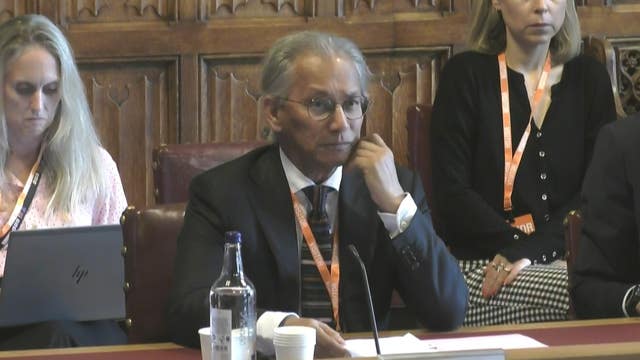New BBC chairman Dr Samir Shah is expected to say “the fight is on” for the future of homegrown programming produced by the corporation as well as ITV, Channel 4, and Channel 5.
In his first major speech as chairman, Dr Shah will say public service broadcasting is a “very British success story”, when he speaks to a gathering of TV industry figures and decision makers at Leeds Conservatoire on Tuesday.
The Indian-born TV and radio executive, who has worked in broadcasting for more than 40 years, is expected to launch a passionate defence of the industry amid the rise of digital streaming, celebrating the economic, social and cultural benefits of the sector.

But he will warn: “Action is needed now to future-proof public service broadcasters, otherwise our very British success story will be part of our halcyon past.”
Dr Shah, who was appointed as the BBC’s 26th chairman in March this year, is expected to add: “No other country has anything like this. Public service broadcasters lie at the heart of our social and cultural life, and they are worth fighting for.
“And, to be frank, the fight is on.”
The 72-year-old will suggest three key steps to the Government and Ofcom to protect public service broadcasters (PSBs).
These will be outlined as an overhaul of the regulatory regime to allow “greater agility, flexibility, and pace” so PSBs can reinvent themselves for the future, a call for streaming companies such as Netflix to invest in British creative industries, and a call to enforce the Media Act.
The Media Act was passed earlier this year, with Dr Shah wanting the Government to use it to ensure homegrown broadcasters are prioritised in the digital age.
He will add: “British public service broadcasters have, over the years, created something quite wonderful.
“We should work together as a sector to future-proof this precious asset and put it at the heart of the growth strategy that is key to the future prosperity of this country.
“So I will work with my fellow public service broadcasters to press our legislators and regulators to take action on these fronts. To invert the cliche, let us act fast, so that we don’t repent at leisure.”
Introduced this year, the Media Act gave Channel 4 the ability to produce and monetise more of its own programming, previously it had to commission independent production companies to make its shows as it is a not-for-profit public corporation that relies on advertising revenue for profitability.




Why are you making commenting on The National only available to subscribers?
We know there are thousands of National readers who want to debate, argue and go back and forth in the comments section of our stories. We’ve got the most informed readers in Scotland, asking each other the big questions about the future of our country.
Unfortunately, though, these important debates are being spoiled by a vocal minority of trolls who aren’t really interested in the issues, try to derail the conversations, register under fake names, and post vile abuse.
So that’s why we’ve decided to make the ability to comment only available to our paying subscribers. That way, all the trolls who post abuse on our website will have to pay if they want to join the debate – and risk a permanent ban from the account that they subscribe with.
The conversation will go back to what it should be about – people who care passionately about the issues, but disagree constructively on what we should do about them. Let’s get that debate started!
Callum Baird, Editor of The National
Comments: Our rules
We want our comments to be a lively and valuable part of our community - a place where readers can debate and engage with the most important local issues. The ability to comment on our stories is a privilege, not a right, however, and that privilege may be withdrawn if it is abused or misused.
Please report any comments that break our rules.
Read the rules hereLast Updated:
Report this comment Cancel